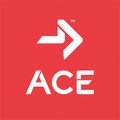Health coaching is a rewarding career choice for those who are interested in supporting others in making lasting lifestyle changes to enhance health and well-being. When I started out as a health coach I assumed that a lot of my work would be to educate clients about proper nutrition and fitness. Because my specialty is weight management, I filled a bookshelf with reference texts and a file drawer with worksheets on dieting myths, portion control, meal planning and how to read labels. To boost my own personal library, I also accessed tremendous resources related to goal setting and behavior change on the ACE website.
I quickly discovered that most of my clients had plenty of knowledge about diet and exercise. Nor were they eager to fill out worksheets, either during our appointments or on their own. Despite the fact that I had meaningful information to share on weight loss and behavior change, I needed an effective way of making it relevant to my clients. I decided to put my degree in adult education to good use by weaving the fundamentals of educational theory into my coaching practice. Adult learning theory is based on the presumption that adult learners are self-directed, oriented toward problem solving, prize practicality over theoretical knowledge, and have a vast reservoir of life experience upon which to draw.
As a result, I knew I had to create a highly customized experience to meet each client’s individual needs. Today, I still turn to the material from my bookshelf and files, but I do this strategically. Here are four tips you can follow when deciding how and when to reach for your educational materials:
1. Ask permission.
This may seem obvious, but listen for or request your client’s go-ahead before supplying educational resources. This approach gives you time to clarify exactly what type of information the client is seeking, and it also strengthens your relationship by giving the client freedom of choice.
2. Focus on “just-in-time” education.
This means attending to your client’s specific needs, only supplying information they want, and doing so at the moment they need it. You may be eager to demonstrate your expertise by sharing a new piece of nutrition or exercise data, but this may fall flat unless it relates to your client’s personal experience. Be patient and wait for your client to specifically request educational material. For example, save the information on FDA Nutrition Facts labels until your client asks you about improving his or her grocery shopping experience.
3. Offer information in a variety of formats.
Some clients want a book to read on their own time, while others prefer to visit a website or blog, or have a single piece of paper they can reference as needed. Your clients will appreciate when you ask them about their preferred materials and then provide what they need.
4. Worksheets, books, websites and brochures are useful tools, but they never take the place of good coaching.
Remember, your clients have come to you for support and guidance in making sustainable lifestyle changes. It is not enough to place information at your client’s fingertips. Demonstrate your true value as a coach by helping clients apply that information to their lives. For example, beyond sharing a new cookbook full of healthy recipes, explore the types of recipes your clients like best and how they might make time to shop for ingredients and cook at home.
Lead with your coaching voice and you’ll discover your clients’ preferred learning styles. You will know you have struck the right balance between health coaching and health education when your clients leave the meeting with personally meaningful solutions to their healthy lifestyle challenges—and a practical plan for implementing them.
Looking to expand your knowledge of behavior change and develop physical activity and nutrition coaching skills to empower people to long-term, healthy change? Learn more about ACE’s Health Coach Certification.




 by
by 







 by
by